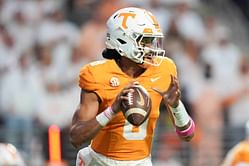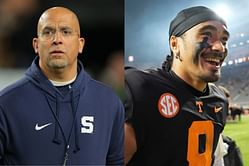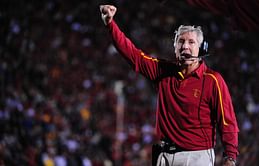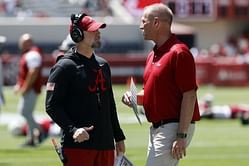
The LSU football team stands as an emblem of unyielding determination and athletic prowess within the realm of college football. Representing Louisiana State University (LSU), this team epitomizes the spirit of excellence and unity on the gridiron. With a rich history dating back to the late 19th century, the LSU Tigers have become a force to be reckoned with in the world of collegiate sports.
Louisiana State University (LSU) has a storied history of tradition and excellence in academics and athletics. Among its cherished traditions, the presence of a live tiger as the LSU mascot stands out prominently. The iconic mascot, affectionately known as Mike the Tiger, symbolizes the spirit, strength, and unity that defines LSU's community. While the university's commitment to this beloved mascot is evident, the question that often arises is, "How much did LSU pay for Mike the Tiger?"
Also Read: What type of tiger is Mike at LSU?
The Cost of LSU's Mascot Mike
The first-ever LSU's Mike costed the University $750, back in 1936. This figure is equivalent to around $17K in 2024 as per the CPI Inflation. Louisiana State University (LSU) has a long-standing tradition of live tiger mascots, each with a unique story and acquisition cost. The university's commitment to its iconic mascot, Mike the Tiger, is evident in the investments made over the years to provide a comfortable and safe habitat for the tigers. The legacy of Mike the Tiger is a testament to LSU's dedication to upholding its proud traditions.

The mascot, a live Bengal tiger, has been integral to LSU's identity for many decades. Each iteration of Mike brings with it a new chapter in the university's history and financial considerations that underscore the significance of this iconic figure.Let's explore the journey of LSU's mascot and the costs associated with each one:
Mike I
In 1936, the original Mike was purchased from the Little Rock Zoo for $750, funded by LSU's student body contributions. The mascot was named "Mike" in honor of athletic trainer Mike Chambers.
Mike II
Mike II arrived secretly on campus in 1956, originating from the Audubon Zoo in New Orleans. A check for $1,500 was presented to the Audubon Zoo to secure his arrival as LSU's new live mascot.
Mike III
Mike III was acquired in 1958 from the Seattle Zoo for $950. LSU students also contributed to his purchase and care by paying a five-cent "tradition fee."
Mike IV
The cost of acquiring Mike IV from the Dark Continent Amusement Park in Tampa, Florida, is not specified in the provided information.
Mike V
Mike V was donated to LSU by Dr. Thomas and Caroline Atchison of the Animal Zoological Park in Moulton, Alabama. The exact cost of acquisition is not mentioned.
Mike VI
Great Cats of Indiana donated Mike VI to LSU, a nonprofit sanctuary and rescue facility. The cost of acquiring Mike VI is not provided.
Mike VII
Following the death of Mike VI, LSU sought another donated tiger to become Mike VII. The specific cost of acquiring Mike VII is not mentioned.
In the grand scheme of things, the financial investment in LSU Mascot Mike the Tiger is a testament to this mascot's significance within the LSU community. The funds expended for acquisition, care, and habitat improvements reflect the university's dedication to upholding its cherished traditions and maintaining a symbol that resonates deeply with students, alumni, and fans alike.
The Cost of Mike The Tiger Habitat
A new special habitat was created for Mike The Tiger in 2005. During the time of Mike V, the University worked on a luxurious 15,000-square-foot environment that cost $3.7 Million at the time. A dozen years later, in 2017, the University spent a further $950,000, to improve the habitat.
Also Read: Why is LSU mascot named Mike?
LSU Tigers Mike Cost FAQs
A. The original Mike, acquired in 1936, cost $750, funded by LSU students' contributions.
A. Mike II's exact cost is unspecified, but a $1,500 check was presented to the Audubon Zoo.
A. A five-cent "tradition fee" per student supported the $950 acquisition and transportation of Mike III.
A. Mike VI, born in 2005, was donated by Great Cats of Indiana, emphasizing the symbolic value.
A. While specific costs are not detailed, both Mike V and Mike VII were donated to LSU.









